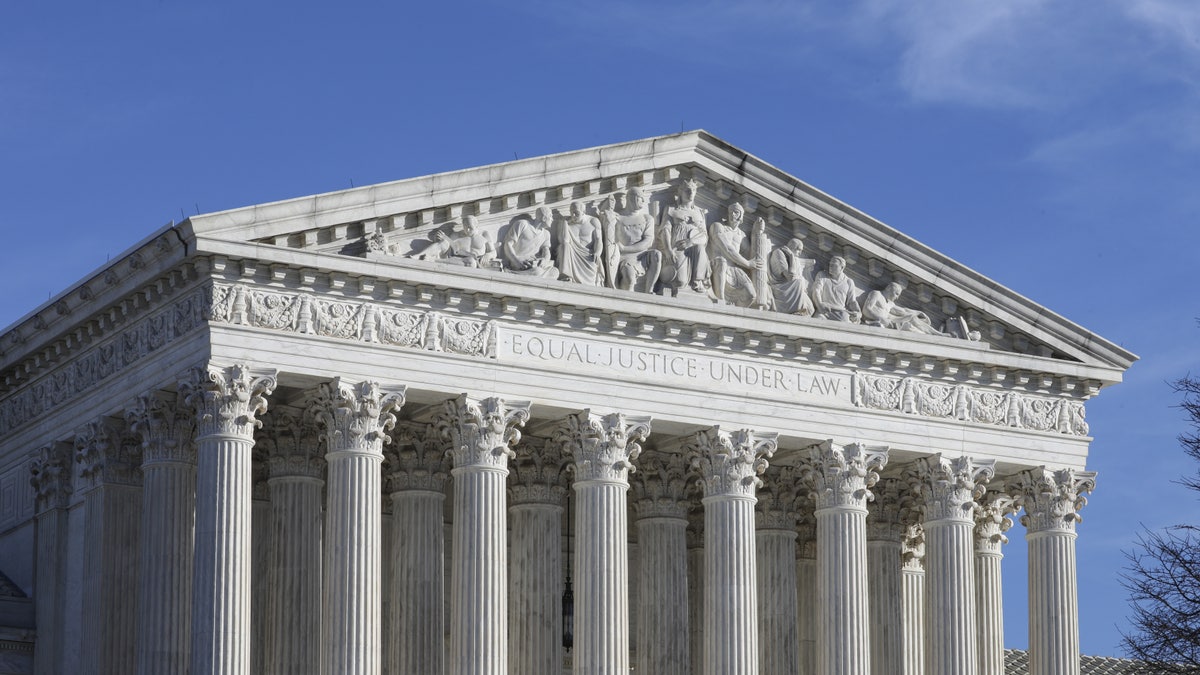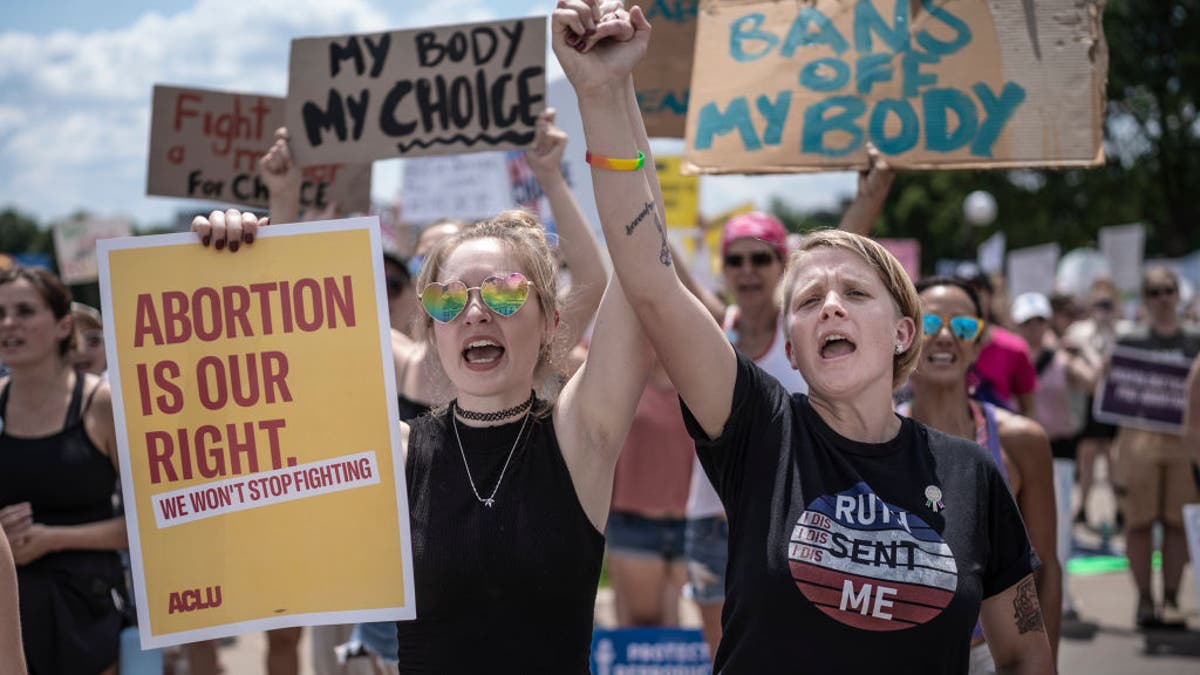Marc Thiessen: Solution to finding the SCOTUS Dobbs draft leaker would be handing the case to the FBI
Fox News contributor Marc Thiessen provides insight into the U.S. Supreme Court's investigation failing to identify the draft leaker for the decision of Dobbs v Jackson Women's Health Organization on 'The Story.'
An investigation by the U.S. Supreme Court has failed to identify the culprit who leaked a draft Court decision that signaled the overturning of Roe v. Wade, the landmark 1973 ruling the legalized abortion at the federal level.
On May 2, 2022, Politico published a draft of the decision in Dobbs v. Jackson Women's Health Organization, the major abortion case that would eventually overturn Roe v. Wade. The unprecedented leak triggered protests across the country and at the justices' homes that continued for months.

An investigation by the Supreme Court has been unable to determine who leaked a draft opinion overturning the federal constitutional right to abortion. (Getty Images)
Chief Justice John Roberts called the leak an "egregious breach of trust." The day after the leak Roberts called upon the Marshal of the Court to investigate the situation and find the source who leaked the document to Politico.
Investigators interviewed more than 120 interviews of nearly 100 employees — all of whom denied disclosing the opinion, the court said.
NEW YORK SENATE REJECTS GOV. HOCHUL'S NOMINEE TO LEAD THE STATE'S HIGHEST COURT
Sources told Fox News over the summer that the initial focus was on some three dozen law clerks who work directly with the justices. Those clerks were asked to turn over their phones.
Per the Marshal’s report, the investigation team has been "unable to identify a person responsible by a preponderance of the evidence."

McKayla Wolff, left, and Karen Wolff join hands as they rally for abortion rights at the capitol in St. Paul, Minn., on July 17, 2022. (Jerry Holt/Star Tribune)
"The investigation has determined that it is unlikely that the Court's information technology (IT) systems were improperly accessed by a person outside the Court," the report says. "After examining the Court's computer devices, networks, printers, and available call and text logs, investigators have found no forensic evidence who disclosed the draft opinion."
ALABAMA SUPREME COURT OPENS WINDOW TO CARRY OUT DEATH SENTENCES AFTER STRING OF TROUBLED EXECUTIONS
The report notes that the Court's internal IT system was more vulnerable with more people working from home because of the coronavirus pandemic.
"The pandemic and resulting expansion of the ability to work from home, as well as gaps in the Court's security policies, created an environment where it was too easy to remove sensitive information from the building and the Court's IT networks, increasing the risk of both deliberate and accidental disclosures of Court-sensitive information," the report says.
The Law Clerk Code of Conduct expressly prohibits clerks from discussing the work of the Court. It states that the "temptation to discuss interesting pending or decided cases among friends, spouses, or other family members … must be scrupulously resisted."
However, the Marshall's report notes that a few of those interviewed during the investigation admitted to having told their spouse or partner about the draft Dobbs opinion in violation of the Court's confidentiality rules. Some personnel, the report adds, handled the Dobbs draft "in ways that deviated from their standard process for handling draft opinions."
Investigators are continuing to "review and process some electronic data that has been collected and a few other inquiries remain pending," the report says.
CLICK HERE TO GET THE FOX NEWS APP
"The Court investigators will continue following up on leads if more information is learned," said Michael Chertoff, former DHS secretary and a former federal appeals judge brought on by Roberts as a consultant on the court's internal investigative methods. "In the meantime, the Court has already taken steps to increase security and tighten controls regarding the handling of sensitive documents.
"Most significantly, the Chief Justice has also directed a comprehensive review of the Court's information and document security protocols to mitigate the risk of future incidents."
Fox News’ Brianna Herlihy contributed to this report.












































